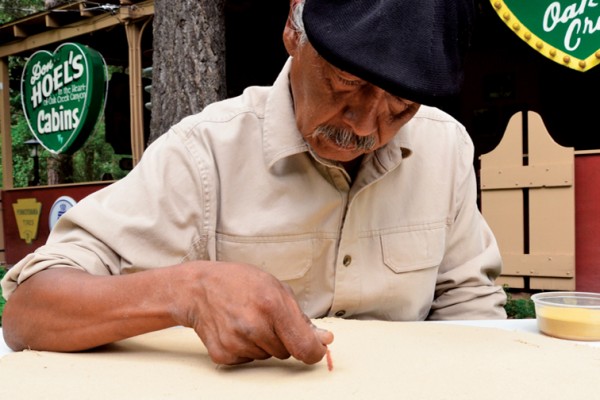Continued (page 4 of 4)
Sweet Dreams: Rob Fruchtman
Sweet Dreams is a documentary that covers a lot of ground. A group of women in Rwanda break down gender barriers by taking up drumming and then by opening the country’s first ice cream shop nearly 17 years after one million people were killed in Rwanda’s horrific genocide. SIFF screeners were unanimously bowled over by the film, and they’ve watched a documentary or two. We spoke with Rob Fruchtman who, along with his Academy Award-winning sister, Lisa Fruchtman (she won the award for editing The Right Stuff), produced and directed the film.
Sedona Monthly: So after we finished watching this film, even in winter, all we wanted to do was go get ice cream. Do you get that often?
Rob Fruchtman: [Laughs] I don’t always get that, but I have heard people who want to go drum.
How did you and Lisa become involved in the film?
We found out about it through a third party in California who called and told us about this amazing thing happening in Rwanda – a group of women opening the country’s first ice cream shop. I thought it was insane, but when I found out they were genocide survivors, I got very interested. We went with our hunch and hoped we had found a good story, which is true of many documentaries. We raised money to get on a plane with our camera and go to Rwanda. It was the beginning of a two-and-a-half year journey. We started filming in January 2010.
Without giving away too much about the film, let’s talk about the overarching theme because it covers a lot of ground: ice cream, drumming and Rwanda’s national month of mourning.
Initially, the story was about the drummers and how they came to drum. Then it became about bringing new ideas to a country that is still healing from a trauma and rebuilding itself economically. As we got further into it, we realized ice cream is a way to bring people together to teach a new generation that it’s okay to smile and relax and gather. Children in Rwanda don’t really have places where they can do that. Then we found this underlying sadness, which we expected. You can’t have a genocide like what happened in Rwanda where families of perpetrators live next door to victims and survivors and not have an enormous amount of tension. The purpose of the month of mourning isn’t necessarily to mourn but to express themselves and to forgive each other. We didn’t want our film to be about the genocide, though. We wanted it to show Rwanda today and how these amazing grassroots efforts are changing the country. But you can’t have a film about Rwanda without the backstory.
It must have been a life-changing experience for both of you.
It was. It was our first trip to Africa, and we spent about five months there. As a person, I was humbled when I returned home. In Rwanda, they have such difficult lives, but they also have a great deal of joy. I remind myself about this everyday if I complain about something. The beauty of documentary filmmaking is being introduced to the world and to lives, and that’s a true gift.
MORE SEDONA INTERNATIONAL FILM FESTIVAL: 2014, 2012, 2011, 2010, 2009, 2008, 2007, 2006, 2005, 2004



